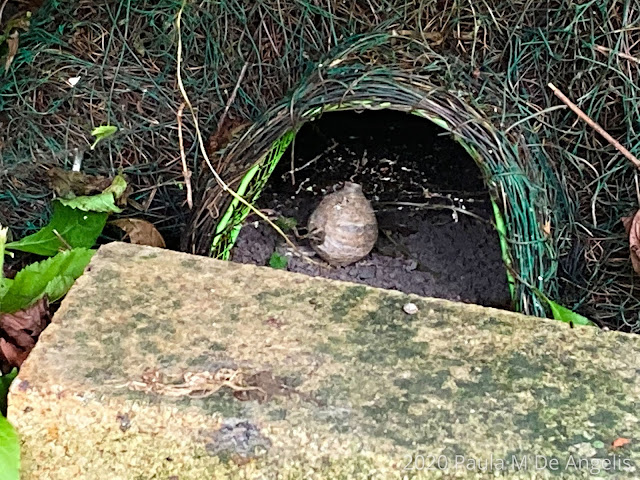How does society pressure us to conform to specific ways of
doing things? It starts when we are young, when our creative ideas are often stifled
or when we are distracted by others from pursuing them. The latter is a common device
used by some teachers, parents, and politicians to try and distract students,
children, and constituents from following their creative bents, in case those
creative bents result in people who end up thinking for themselves, using their
brains and their talents to define their lives rather than relying on society
to define their lives for them. For example, how many young adults have been
told to pursue a college education when they were clearly more suited for
creative or vocational pursuits? The idea that college is for everyone has been
oversold in our modern society. A college degree is useful for many types of
jobs, but not necessary for all types of jobs. The pressure to conform to
‘going to college’ is strong, and in many cases, very costly, as college
education (at least in the USA) costs quite a bit of money.
The language of conformity uses the following
words/expressions:
- Should, as in You
should do this or that
- Should have, as in You
should have done this or that
- Don’t, as in Don’t
waste your time on that endeavor
- Wouldn’t, as in I
wouldn’t do that if I was you
- I told you so (self-explanatory)
- Good/bad, as in This
is good for you, whereas that is bad for you
- Success/failure, as in You
either succeed in life, or you fail
- Ambitious/lazy, as in You
are either ambitious about achieving this or that goal, or you are not (lazy)
- Effective/inefficient, as in This way of doing things is effective, whereas this way is inefficient
- Black/white, as in This
is a black and white situation (what happened to grey?)
There are probably many more examples, but these are good
examples of words that pressure people to conform to a certain way of doing
things. They are negative words that squash creativity and the ability to think
for oneself. They are words that feed the inner voice of shame, embarrassment,
low self-esteem, and anxiety. They are not words designed to make you feel good
about yourself, your actions, or your ideas. They are not words designed to
empower you or to encourage you to take the risks in life that are necessary in
order for you to grow as a person. The language of conformity does not allow
for a ‘middle ground’ way of thinking.
We all have had experience with people who are lukewarm in
their support of our creative endeavors. They are not bad people, they may just
be fearful people, who would never think of taking major creative risks
themselves. So they fear for others they care about who are taking those risks.
There are also people who frown upon anything other than the prescribed way of
doing things. They are quick to tell you I
told you so when something you’ve attempted doesn’t go the way you’ve
hoped. They know best, even though they have never done what you are doing. They
are quick to remind you that the ‘tried and true’ approach to life and work is
the best approach. And maybe it is for most people, but not for all. They are
quick to tell you not to give up your day job, or to give you the statistics
about how most artists can’t support themselves on their creative endeavors alone.
It is probably all true, but if everyone followed that path, there would be little
art, books, plays, poetry, photography, etc.
Even when other people are supportive and encouraging, our
inner voices may be our own worst enemies. Where do those voices come from?
You’d probably have to go back to early adulthood to find that out. I can say
from experience that it wasn’t until I started working full-time that the
negative voices began to pop up. Perhaps once one starts to work in the work
world, where you must play by others’ rules, you learn to ignore or squash that
inner voice that tells you that your ideas are good and worth listening to. Or
perhaps your colleagues are not very interested in your ideas or feel
threatened by them, so they ignore them. It hurts, and you learn not to open
your mouth as much. Or you meet the ‘besserwisser’,
the know-it-all, the been there and
done that person in the office, who will gladly share his or her
experiences with you so that you don’t have to repeat his or her ‘mistakes’. The
end result is that you learn to conform, to say what you think those around you
want to hear, to speak the party line and be happy with that. But what if your
ideas did not lead to ‘mistakes’? And what if the word ‘mistake’ is merely
another word to add to the list of the language of conformity? The word
mis-take could just mean that your ‘take’ on a situation was off the beaten
path, one alternative of many.
The language of non-conformity is a more pleasant language.
It includes words and expressions like do,
could, possibly, options, choice,
free will, middle ground, room for growth, self-esteem. These words don’t
weigh so heavily on the soul. They create light, breathing room, expansion, and
freedom. They are words with which our
inner voices can work. There are those who would exploit this language for
their own gain (those who push the idea of ‘the necessity of thinking positive
in order to succeed’). The latter sounds like it is supportive of
non-conformity, but it’s not. It’s pushing
conformity to a way of behaving that includes a prescribed definition of
success, usually financial. It is an either/or proposition once again. You
either think positively and that leads to financial success, or you are financially
unsuccessful because you think negatively. There’s not much room for light and
expansion there.
Georgia O’Keefe wrote: “Whether
you succeed or not is irrelevant, there is no such thing. Making your unknown
known is the important thing--and keeping the unknown always beyond you.” There
are many roads that can help us on that path. One of them is letting our inner
voice have more of a say in how we live and create our daily lives. In these
pandemic times, I’m guessing that more people will start to listen to their
inner voices for guidance about how to live and create their daily lives.
![]()
![]()
![]()
![]()
![]()
![]()
![]()
![]()
![]()
![]()
![]()
![]()
![]()
![]()
![]()
![]()
![]()
![]()
![]()
![]()





/media/img/mt/2020/03/Atlantic_Trump_corona_2/original.png)



/media/img/mt/2020/06/Atlantic_second_C_v2/original.png)




































